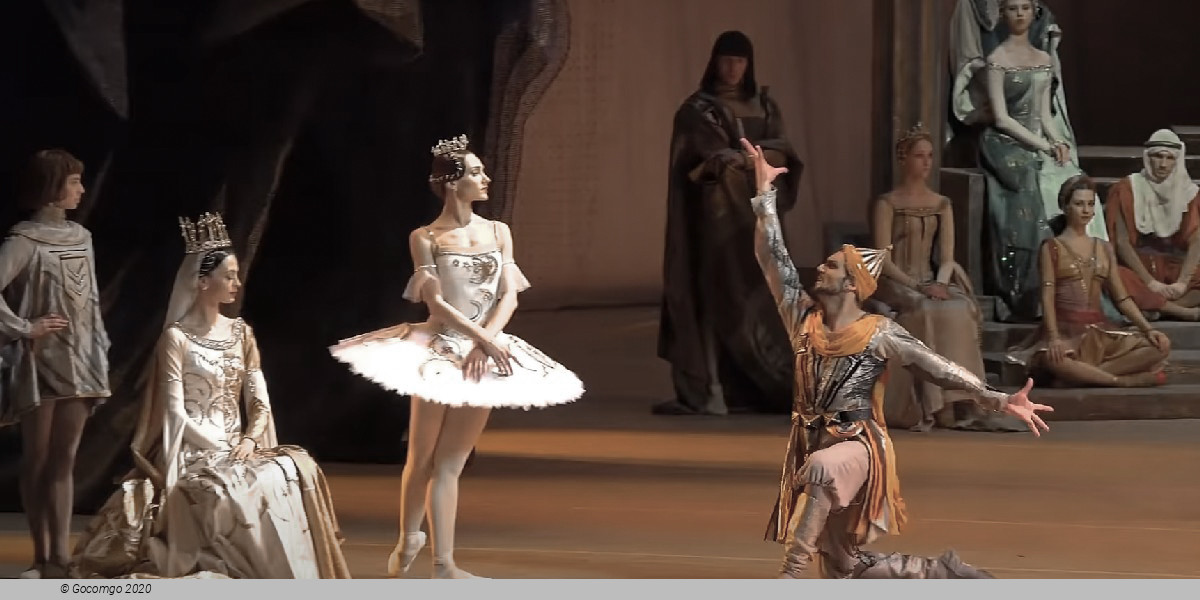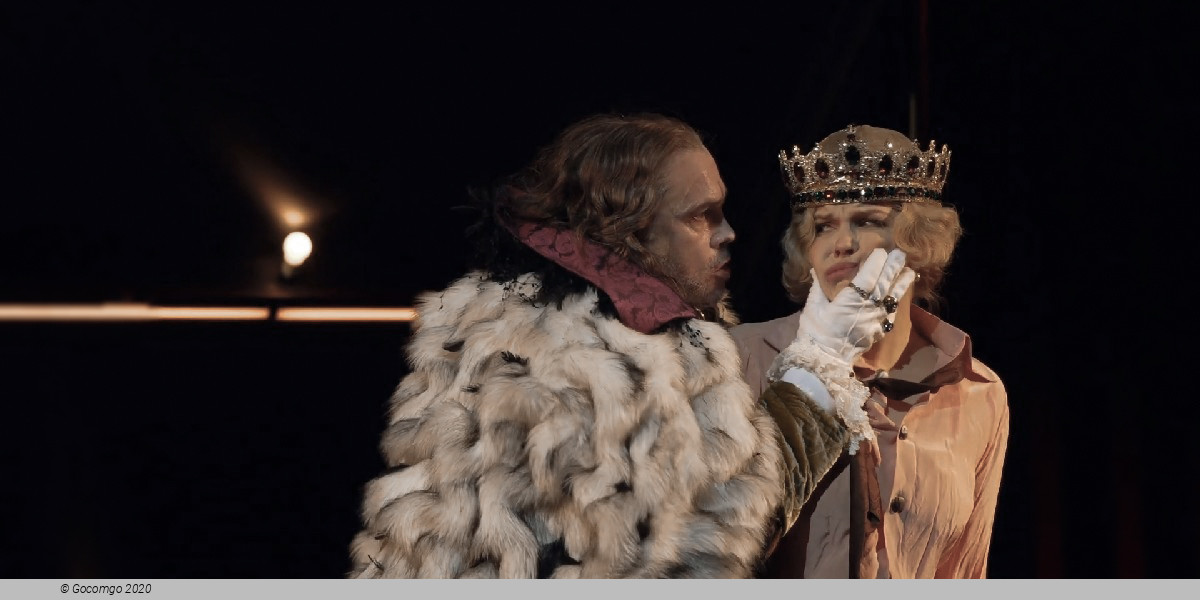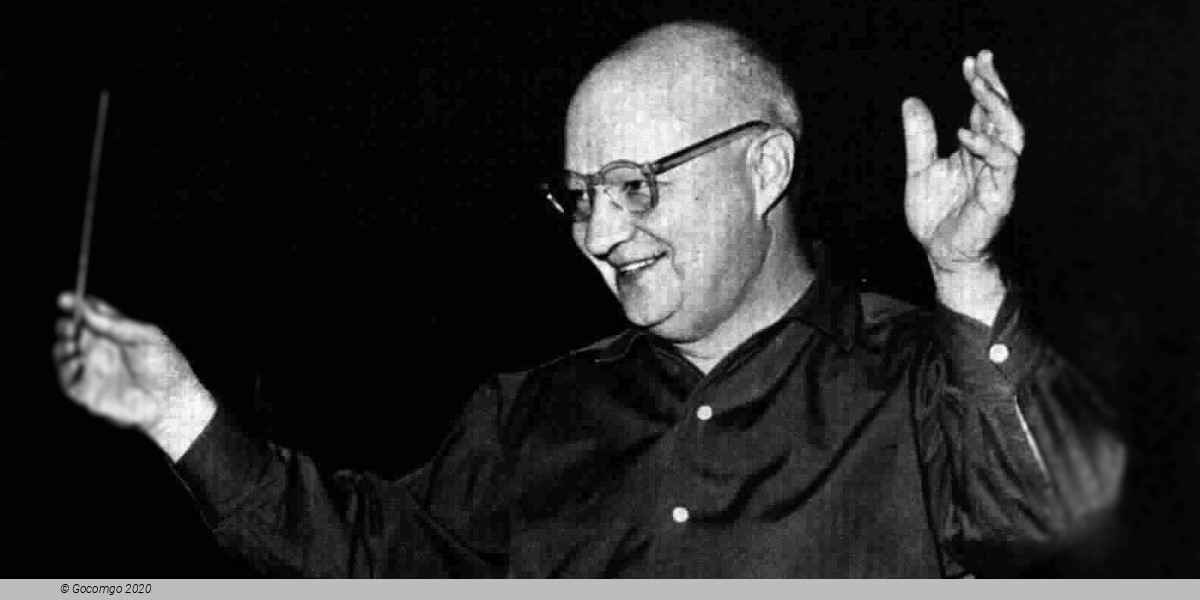Events13 results
About
Paul Hindemith was a prolific German composer, violist, violinist, teacher and conductor. In the 1920s, he became a major advocate of the Neue Sachlichkeit (new objectivity) style of music. Notable compositions include his song cycle Das Marienleben (1923), Der Schwanendreher for viola and orchestra (1935), and opera Mathis der Maler (1938). Hindemith's most popular work, both on record and in the concert hall, is likely the Symphonic Metamorphosis of Themes by Carl Maria von Weber, written in 1943.
Life and career
Born in Hanau, near Frankfurt am Main, Hindemith was taught the violin as a child. He entered Frankfurt's Hoch’sche Konservatorium, where he studied violin with Adolf Rebner, as well as conducting and composition with Arnold Mendelssohn and Bernhard Sekles. At first he supported himself by playing in dance bands and musical-comedy groups. He became deputy leader of the Frankfurt Opera Orchestra in 1914, and was promoted to leader in 1917. He played second violin in the Rebner String Quartet from 1914.
Hindemith was conscripted into the German army in September 1917 and sent to join his regiment in Alsace in January 1918. There he was assigned to play bass drum in the regiment band, and also formed a string quartet. In May 1918 he was deployed to the front in Flanders, where he served as a sentry; his diary shows him "surviving grenade attacks only by good luck", according to New Grove Dictionary. After the armistice he returned to Frankfurt and the Rebner Quartet.
In 1921 he founded the Amar Quartet, playing viola, and extensively toured Europe.
In 1922, some of his pieces were played in the International Society for Contemporary Music festival at Salzburg, which first brought him to the attention of an international audience. The following year, he began to work as an organizer of the Donaueschingen Festival, where he programmed works by several avant garde composers, including Anton Webern and Arnold Schoenberg. In 1927 he was appointed Professor at the Berliner Hochschule für Musik in Berlin. Hindemith wrote the music for Hans Richter's 1928 avant-garde film Ghosts Before Breakfast (Vormittagsspuk), and he also acted in the film; the score and the original film were burned by the Nazis. The score was recreated by Ian Gardiner in 2006. In 1929 he played the solo part in the premiere of William Walton's Viola Concerto, after Lionel Tertis, for whom it was written, turned it down.
Hindemith's relationship to the Nazis is a complicated one. Some condemned his music as "degenerate" (largely based on his early, sexually charged operas such as Sancta Susanna), and in December 1934, during a speech at the Berlin Sports Palace, Germany’s Minister of Propaganda Joseph Goebbels publicly denounced Hindemith as an "atonal noisemaker". The Nazis banned his music in October 1936 and he was subsequently included in the 1938 Entartete Musik exhibition (Degenerate Music) in Düsseldorf.
Other officials working in Nazi Germany, though, thought that he might provide Germany with an example of a modern German composer, as by this time he was writing music based in tonality, with frequent references to folk music; the conductor Wilhelm Furtwängler's defense of Hindemith, published in 1934, takes precisely this line. The controversy around his work continued throughout the thirties, with the composer falling in and out of favor with the Nazi hierarchy.
During the 1930s he made a visit to Cairo and several visits to Ankara. He accepted an invitiation from the Turkish government to oversee the creation of a music school in Istanbul in 1935, after Goebbels had pressured Hindemith to request an indefinite leave of absence from the Berlin Academy. In Turkey, he was the leading figure of a new music pedagogy in the era of president Kemal Atatürk. His deputy was Eduard Zuckmayer. Hindemith led the task of reorganizing Turkish music education and the early efforts for the establishment of the Turkish State Opera and Ballet. He did not stay in Turkey as long as many other émigrés. Nevertheless, he greatly influenced the developments of Turkish musical life; the Ankara State Conservatory owes much to his efforts. In fact, Hindemith was regarded as a "real master" by young Turkish musicians and he was appreciated and greatly respected.
Towards the end of the 1930s, he made several tours in America as a viola and viola d'amore soloist.
Hindemith finally emigrated to Switzerland in 1938 (in part because his wife was of partially Jewish ancestry), before moving to settle in the United States in 1940.
At the same time that he was codifying his musical language, his teaching and compositions began to be affected by his theories, according to critics like Ernest Ansermet. Once in the U.S. he taught primarily at Yale University, where he founded the Yale Collegium Musicum. He had such notable students as Lukas Foss, Graham George, Norman Dello Joio, Mitch Leigh, Mel Powell, Yehudi Wyner, Harold Shapero, Hans Otte, Ruth Schönthal, Samuel Adler, Leonard Sarason, and Oscar-winning film director George Roy Hill. He also taught at the University at Buffalo, Cornell University, and Wells College. During this time he also gave the Charles Eliot Norton Lectures at Harvard, from which the book A Composer's World was extracted (Hindemith 1952). Hindemith had a long friendship with Erich Katz, whose own compositions were influenced by him. Also included among Hindemith's students were the composers Franz Reizenstein and Robert Strassburg.
He became a U.S. citizen in 1946, but returned to Europe in 1953, living in Zürich and teaching at the university there until he retired from teaching in 1957. Towards the end of his life he began to conduct more, and made numerous recordings, mostly of his own music.
An anonymous critic writing in Opera magazine in 1954, having attended a performance of Hindemith's Neues vom Tage, noted that "Mr Hindemith is no virtuoso conductor, but he does possess an extraordinary knack of making performers understand how his own music is supposed to go".
He was awarded the Balzan Prize in 1962 "For the wealth, extent and variety of his work, which is among the most valid in contemporary music, and which contains masterpieces of opera, symphonic and chamber music."
After a prolonged decline in his physical health, although he composed almost to his death, Hindemith died in Frankfurt from pancreatitis aged 68.





